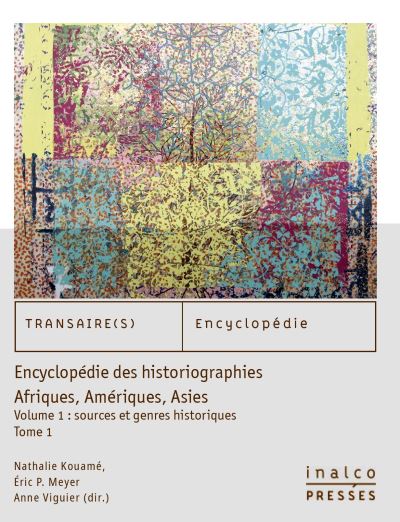Bibliographie établie par Julien Bouvard
Ouvrages en langue française
AZUMA Hiroki, Génération Otaku, les enfants de la postmodernité, Paris, Hachette, 2008.
BOUISSOU Jean-Marie, Manga Histoire et univers de la bande dessinée japonaise, Arles, Editions Philippe Picquier, 2010.
DÉTREZ Christine, VANHÉE Olivier, Les mangados – lire des mangas à l’adolescence, Paris, BPI centre Pompidou, 2012.
FINET Nicolas, FERRAND Stéphane, SEEGMANN Michel, Dico Manga : le dictionnaire encyclopédique de la bande dessinée japonaise, Paris, Fleurus, 2008.
GRAVETT Paul, Soixante ans de bande dessinée japonaise (traduit de l’anglais), Paris, Editions du Rocher, 2005.
GROENSTEEN Thierry, L’univers des mangas – une introduction à la bande dessinée japonaise, Paris, Casterman, 1996.
GUILBERT Xavier (Dir.), Mangapolis : la ville contemporaine japonaise dans le manga, Poitiers, Le Lézard Noir, 2012.
HERMAN Paul, Europe Japon, regards croisés en BD, Grenoble, Glénat, 2009.
KOYAMA-RICHARD Brigitte, 1000 ans de manga, Paris, Flammarion, 2007.
McCARTHY Helen, Osamu Tezuka Le Dieu du manga (traduit de l’anglais), Paris, Eyrolles, 2010.
NASH Eric P., Manga Kamishibai : du théâtre de papier à la BD japonaise (traduit de l’anglais), Paris, Éditions de la Martinière, 2009.
PIGOT Pierre, Apocalypse manga, Paris, PUF, 2013.
PINON Matthieu, LEFEBVRE Laurent, Histoire(s) du manga moderne 1952-2012, Paris, Ynnis Editions, 2015
SIGAL Den, Grapholexique du manga, comprendre et utiliser les symboles de la BD japonaise, Paris, Eyrolles, 2007.
TEZUKA Osamu, Ma vie en manga, Bruxelles, Kana, 2011.
Ouvrages en langue anglaise
BERNDT Jaqueline, RICHTER Steffi (dir.), Reading Manga : Local and Global Perceptions of Japanese Comics, Leipziger Universitatsverlag, 2006.
GALBRAITH W. Patrick, The Moe Manifesto : an insider’s look at the worlds of manga, anime and gaming, Tuttle, 2014.
INGULSRUD John E., ALLEN Kate, Reading Japan Cool – Patterns of Manga Literacy and Discourse, Lanham, Lexingtons Books, 2009.
KINSELLA Sharon, Adult Manga, Culture and Power in Contemporary Japanese society, Richmond, Curzon Press, 2000.
McCARTHY Helen, A brief History of Manga, Lewes, Ilex, 2014.
McLELLAND (Dir.), Boys Love Manga and Beyond : History, Culture, and Community in Japan, University Press of Mississippi, 2016.
McWILLIAMS W. Mark, Japanese Visual Culture : Explorations in the World of Manga and Anime, New York, M.E. Sharpe, 2008.
PATTERN Fred, Watching anime, Reading Manga : 25 years of essays and reviews, Berkeley, Stone Bridge, 2004.
ROSENBAUM Roman (Dir.), Manga and the Representation of Japanese History, New York, Routledge, 2012.
SCHODT Frederick L., Dreamland Japan, Berkeley, Stone Bridge Press, 1996.
SCHODT Frederik L., Manga ! Manga ! The World of Japanese Comics, Tôkyô, Kôdansha international, 1988.
Ouvrages en langue japonaise
秋山正美『まぼろしの戦争漫画の世界』、夏目書房、1998
飯沢耕太郎『戦後民主主義と少女漫画』、PHP研究所、2009
いしかわじゅん『漫画の時間』、新潮社、1995
石子順『平和の探求 手塚治虫の原点』 、新日本出版社、 2007
石子順『新マンガ学』、毎日新聞社、 1973
石子順造、 菊地浅次郎、権藤晋、『劇画の思想』、太平出版社、1975
石子順造『現代マンガの思想』、太平出版社、1970
石子順造『戦後マンガ史ノート』、紀伊国屋書店、1994
伊藤公雄(編)『マンガのなか<他者>』、 臨川書店、2008
伊藤剛『テヅカ・イズ・デッド ひらかれたマンガ表現論へ』、NTT出版、2005
井上学(編)『マンガの読み方』、宝島社、1995
茨木正治 『メディアのなかのマンガ』、臨川書店、2007
宇野常寛『ゼロ年代の想像力』、早川書房、2008
大塚英志『アトムの命題 手塚治虫と戦後まんがの主題』、角川書店、2009
大塚英志『「彼女たち」の連合赤軍―サブカルチャーと戦後民主主義』、角川書店、2001
大塚英志『戦後マンガの表現空間』、法蔵館、1994
大塚英志『定本物語消費論』、角川書店、2001
貸本マンガ史研究会(著)『貸本マンガRETURNS』、ポプラ社、2006
呉智英『現代マンガの全体像』 、双葉社、1997
『現代マンガ博物館』1945-2005、小学館、2006
『コミック学のみかた』、朝日新聞社、1997
コミックマーケット準備会 『コミックマーケット30’sファイル』、コミケット、2005
小山昌宏『 戦後マンガ論争史』、現代書館 、2007
清水勲『漫画の歴史』、岩波書店 、1991
清水勲『日本近代漫画の誕生』、山川出版社、2001
副田義也『マンガ文化』、 紀伊国屋書店、 1983
竹内オサム『マンガ表現学入門』、筑摩書房、2005
竹内オサム『本流 !マンガ学―マンガ研究ハンドブック』 、晃洋書房、2009
竹内オサム『戦後マンガ50年史』、 筑摩書房、1995
谷川彰英(編)『マンガは時代を映す』、東京書籍、1995
鶴見俊輔『限界芸術論』筑摩書房、1967
中野晴行『マンガ進化論 コンテンツビジネスはマンガから生まれる!』、スペースシャワーネットワーク、2009
永山薫『エロマンガスタディーズ 「快楽装置」としてのマンガ入門』、イーストプレス、2006
夏目房之介『マンガはなぜ面白いのか その表現と文法』、NTT出版、1997
夏目房之介『マンガの深読み、大人読み』、イーストプレス、2004
夏目房之介『夏目房之介の漫画学』、筑摩書房、1992
夏目房之介、竹内オサム、『マンガ学入門』、ミネルヴァ書房、2009
福島章『マンガと日本人-« 有害 »コミック亡国論を斬る』、日本文芸社、1992
藤本由香里『私の居場所はどこにあるの? 少女マンガが映す心のかたち』、朝日新聞出版、2008
堀あきこ 『欲望のコード マンガにみるセクシュアリティの男女差』、臨川書店、2009
『漫画家・アニメ作家人名事典』、日外アソシエーツ、1997
宮台真司、石原英樹、大塚明子『サブカルチャー神話解体 少女・音楽・マンガ・性の30年とコミュニケーションの現在』、PARCO出版、1993
宮原浩二郎、荻野昌弘『マンガの社会学』、世界思想社、2001
村上知彦『イッツ・オンリー・コミックス』、廣済堂出版、1991
ヨコタ・村上孝之『マンガは欲望する』 筑摩書房、2006
吉本隆明『全マンガ論 表現としてのマンガ・アニメ』、小学館、2009
米澤義博『戦後少女マンガ史』、新評社、1980
米沢嘉博『戦後SFマンガ史』、新評社、1980
Revues spécialisées :
Manga 10 000 images, Versailles, Editions H, 3 numéros, 2009-2012.
Mechademia, Minneapolis, University of Minnesota Press, 9 numéros, 2006-2014
『マンガ研究』、日本マンガ学会、Vol.1-22、2002-2016

